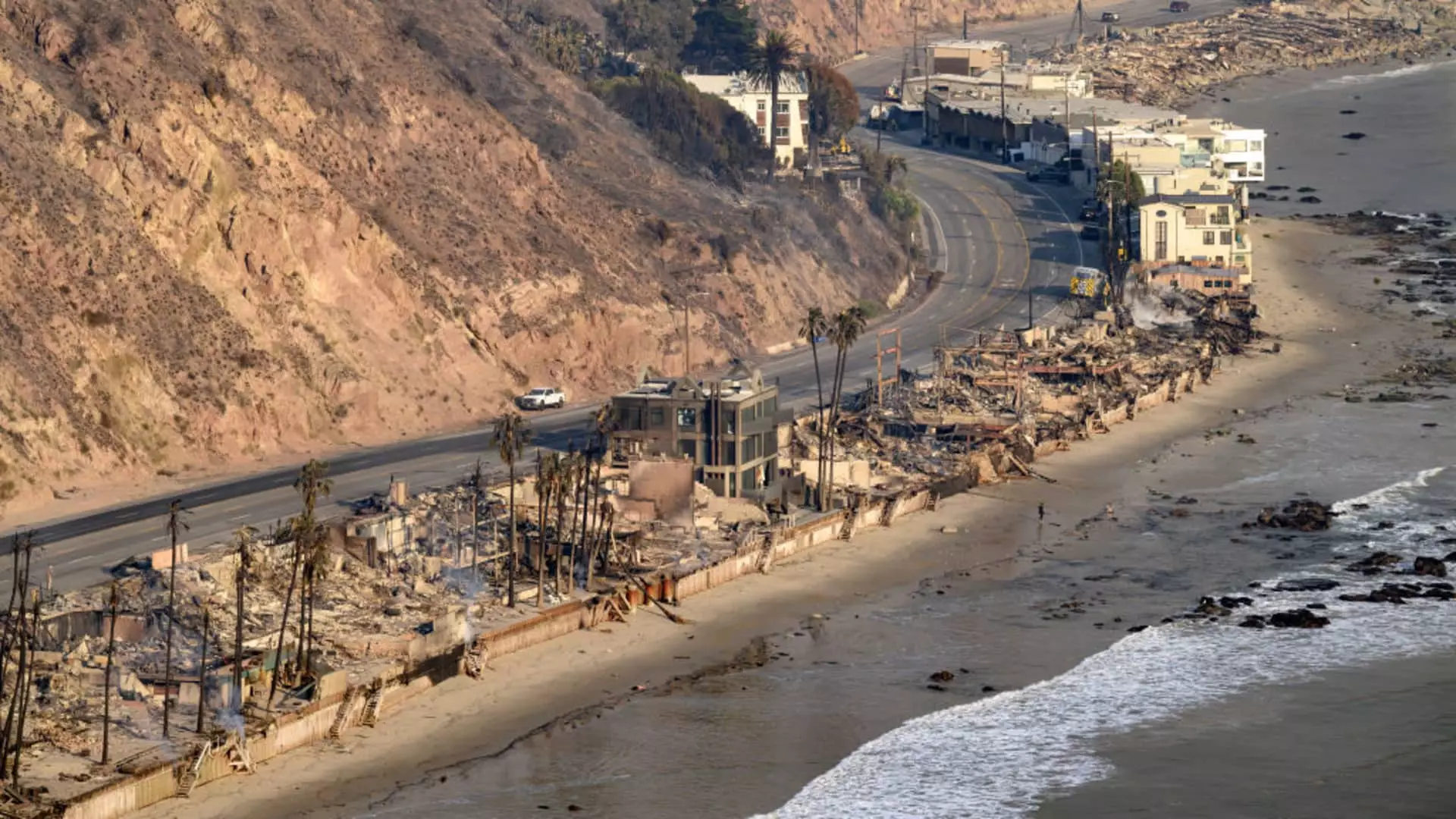In recent weeks, wildfires have drastically altered the landscape of Los Angeles, inflicting serious damage and leading to widespread evacuations. The repercussions are deeply felt across various sectors, especially in air travel. Airlines have stepped in, offering travel waivers that aim to alleviate the stress and confusion faced by affected passengers. Major carriers such as American Airlines, United Airlines, Southwest Airlines, and JetBlue Airways have announced that they will waive change fees for travelers booked to Los Angeles, where residents are grappling with power outages and acute water shortages.
This situation underscores the inherent unpredictability of natural disasters and their ripple effects on daily life. While the infrastructure of Los Angeles’ airports remains functional—with flights operating normally, according to data from FlightAware—the emotional and practical consequences for travelers are far from trivial. The reality is that over 10,000 structures, including homes, have been rendered uninhabitable. The ongoing threats of fire, smoke, and other environmental hazards continue to loom large.
To navigate this challenging scenario, airlines have rallied to provide flexible options for their customers. American Airlines has particularly emphasized minimal disruption for its passengers, enabling them to rebook their flights without incurring extra fees—something that is a lifeline for those whose plans have been thrown into disarray. Notably, the allowance to reschedule for flights as late as January 20 offers a significant safety net for many travelers.
In a similar vein, Southwest Airlines announced that customers can rebook their flights within a 14-day window from the original travel date without facing any additional charges. This demonstrates a robust customer service approach, understanding the fears and uncertainties that accompany travel during such tumultuous times. Moreover, travelers have the option to modify their trips to other California locations like Palm Springs and San Diego, providing a sense of agency in what feels like an increasingly constrained situation.
Interestingly, the economic implications of these wildfires extend beyond immediate logistical adjustments. Delta Air Lines, a major player in the air travel market, has reported a decline in sales to Los Angeles, which remains one of its busiest hubs. This reduction in bookings, although not marking a significant uptick in cancellations, signifies a shift in consumer behavior triggered by the ongoing disasters.
Glen Hauenstein, Delta’s president, alluded to the complex nature of travel demand, particularly following natural calamities. While an initial decline might suggest diminished interest in the Los Angeles area, historically, there tends to be a rebound in demand once rebuilding efforts begin. Hauenstein’s recognition of the cyclical nature of travel patterns both highlights the resilience of the airline industry and reflects a cautiously optimistic outlook for future business in the region.
As authorities work to tame the wildfires and provide support to affected communities, airlines must simultaneously strategize for the future. While the current landscape is characterized by disruption, the post-crisis phase often brings forth opportunities for renewal. The desire for travel, both for leisure and business, remains strong, even in the face of adversity. This sentiment is echoed by Hauenstein, who remarked, “Our hearts go out to everybody in Los Angeles affected by this,” signaling a recognition of not just the market dynamics but also the human element.
In the long term, taking into consideration the noticeable change in passenger psychology and behavior may allow airlines to better cater to evolving customer needs and preferences. Factors such as safety, environmental concerns, and the desire for flexibility are likely to overshadow traditional metrics in the months to come.
The wildfires in Los Angeles serve as a stark reminder of how unpredictable natural disasters can be and how they affect various sectors, including air travel. The response from the airline industry demonstrates a commitment to customer care amid hardship. The dual challenge lies in addressing immediate logistical concerns while also preparing for the evolving dynamics of travel demand in a post-disaster landscape. The resilience of both the local community and the travel industry will be key as they move forward through these turbulent times.

